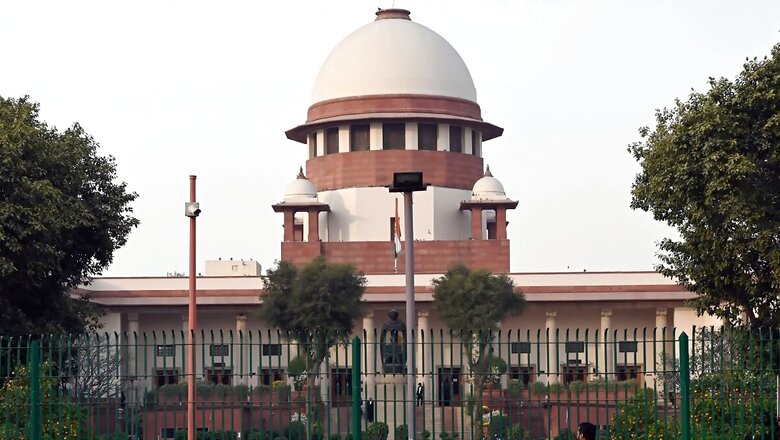
views
The Supreme Court on Wednesday, while citing Article 1 of the Indian Constitution said that Article 370 was never intended to be permanent. The apex court said that Article is a clear indicator of the non-permanence of Article 370.
The five-judge Constitution bench was headed by Chief Justice of India (CJI) D Y Chandrachud. The bench was hearing arguments on petitions challenging the reorganisation of Jammu and Kashmir into two Union Territories and the changes made to Article 370.
In response to the submissions made by advocate Gopal Sankaranarayanan opposing the changes to Article 370, the CJI noted that Article 1 is a permanent feature of the Constitution and it was in any case applicable to Article 370. “That’s an embedded part of the Constitution,” the CJI was quoted as saying by the Indian Express.
The CJI said that the objective of putting Article 1 in Article 370 was to reinforce that Article 1 is a permanent feature. Explaining the introduction of Article 1 into Article 370, the CJI said, “During the interim period, when there was a power to modify provisions of the Constitution – those relatable to the Instrument of Accession (IoA) with consultation, those not relatable to the IoA with concurrence.”
CJI Chandrachud explained that if Article 370 were intended to be permanent then there would be no reason to include Article 1 in the former as the latter is either way a permanent feature of the Constitution.
Although the ‘principle of surplusage’ might be applied to normal statutes of the legislature any intention to use a surplusage or something without any meaning would never be attributed to the Constitution makers.
He further added why Article 1 is a clear indicator that Article 370 was never intended to be permanent. He said the reason behind the specific reference of Article 1 in Article 370 is that during the interim period when other provisions were capable of being modified, it was absolutely clear that Article 1 would not be modified.
The bench comprising Justices SK Kaul, Sanjeev Khanna, BR Gavai, and Surya Kant was told by Sankaranarayanan that the case is effectively about whether the power exists and whether to procedure for exercising that power is followed. He said that the procedure for a part of a state to be converted into a UT was not followed for Jammu and Kashmir under Article 3.
“The manner of exercise of that power is one of the fraudulent, invidious exercise of power we have seen in this country since 1970 (when the privy purse was abolished),” Sankaranarayanan submitted.
Reportedly, on Tuesday, CJI had asked whether the speech of a Constituent Assembly member, however massive or serious it may be, can represent a commitment by the nation to Jammu and Kashmir.
In response, senior advocate Menaka Guruswamy on Wednesday said, “It poses upon us a seminal Constitutional question: Can the Constitution be altered in ways opposed to her founders’ Constitutional intention?”
The arguments of the petitioners’ side were concluded on Wednesday and the Centre will be beginning its arguments on Thursday.
















Comments
0 comment